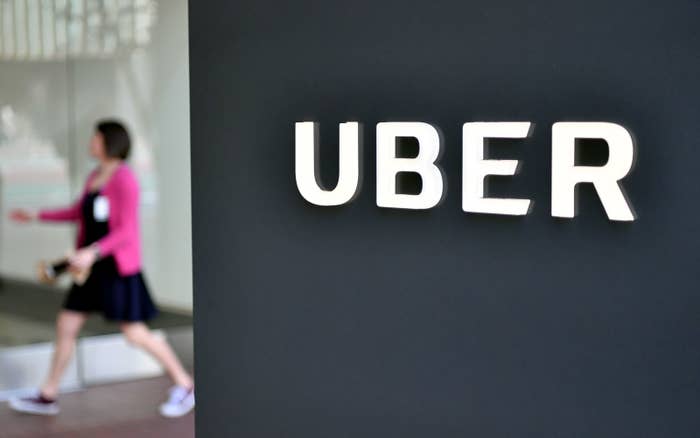
Lawyers are challenging Uber in court after the San Francisco–based ride-hail company asked a judge to send a class-action sexual assault lawsuit to arbitration.
On Thursday, Wigdor LLP, which had filed a class-action lawsuit in November on behalf of two plaintiffs who said they were sexually assaulted by Uber drivers, pushed back on Uber’s request for arbitration, adding seven more unnamed women to the suit and arguing that “time’s up for forced arbitration on survivors of sexual violence.” With arbitration, Uber seeks to resolve the dispute through the use of an impartial third party behind closed doors, avoiding the spectacle and public nature of a jury trial.
“Uber is frantic to deny Jane Does and thousands of female victims their right to access our judicial system, as demonstrated by Uber’s recent shameful attempt to force this action into arbitration immediately,” read the complaint filed on Thursday.
Following a bruising, scandal-plagued 2017 that exposed Uber’s toxic internal culture and allegations of sexual misconduct, the company has spent much of 2018 trying to clean up its act. New Uber CEO Dara Khosrowshahi, who replaced ousted founder Travis Kalanick in August, unveiled a new internal company mantra in November: “We do the right thing. Period.”
Jeanne Christensen, the Wigdor lawyer representing the nine women, said that Uber’s new slogan is anything but accurate. While Khosrowshahi has been on something of an apology tour in recent months, “they have gone out of their way to not mention [this class-action suit] ever,” said Christensen. The original class-action suit was filed on Nov. 13 by Wigdor, which has represented multiple sexual assault claims against Uber, including one in India, where an executive was alleged to have illegally obtained the medical files of a passenger who had been raped by a driver in India.
“The allegations brought forth in this case are important to us and we take them very seriously,” an Uber spokesperson said in a statement. “Arbitration is the appropriate venue for this case because it allows the plaintiffs to publicly speak out as much as they want and have control over their individual privacy at the same time.”
Uber’s current terms of service, which passengers agree to before using the app, contains an arbitration agreement.
“By agreeing to the Terms, you agree that you are required to resolve any claim that you may have against Uber on an individual basis in arbitration, as set forth in this Arbitration Agreement,” it reads. “This will preclude you from bringing any class, collective, or representative action against Uber, and also preclude you from participating in or recovering relief under any current or future class, collective, consolidated, or representative action brought against Uber by someone else.”
In August, a federal appeals court ruled in favor of Uber, and overturned a previous decision that said a plaintiff could pursue the company for a claim in spite of the arbitration clause. In that ruling, the US Court of Appeals for the 2nd Circuit in Manhattan ruled that the passenger gave up the right to sue when they signed up for Uber.
Christensen said that the clause was “pretty generic boilerplate” for terms and conditions that are found in most apps. However, she said, most apps are not like Uber.
“It’s an unusual situation because they’re held to such a high level of care because they are in the transportation industry as opposed to the tech industry,” she said. “They provide taxi rides.”
Caroline O’Donovan contributed additional reporting to this story.
